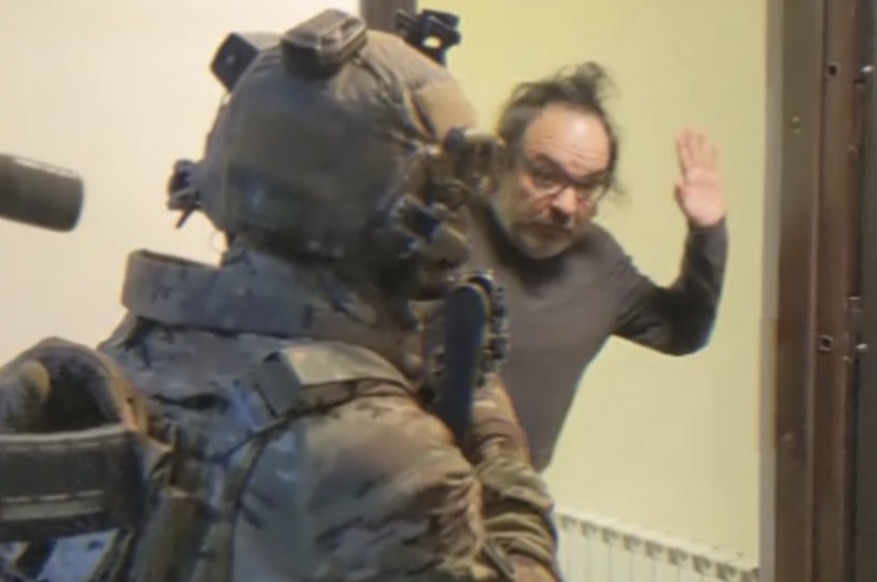On May 1, 2023, Gonzalo Lira, an American citizen and YouTuber with Chilean roots, was arrested by the Security Service of Ukraine (SBU) in Kharkiv. His arrest stemmed from his public criticisms of both the Ukrainian government and the Biden administration regarding the ongoing war in Ukraine. Following his imprisonment, the U.S. Embassy in Kiev faced significant scrutiny for its inadequate response to Lira’s situation, especially from his father, who alleged that the Embassy had effectively ignored his requests for assistance. The Embassy only made a single visit to Lira, coinciding with his court appointment on November 8, 2023. This lack of communication and support from the Embassy raised concerns about the U.S. government’s position on political dissent abroad, with Lira’s father suggesting that the silence implied a tacit approval of his son’s arrest.
As the situation escalated, Lira Sr. continued to plead for help, emphasizing that his son’s imprisonment was a violation of his right to free speech. After a widely publicized interview with Tucker Carlson on December 9, 2023, which brought further attention to Lira’s plight, inquiries from Senator Ron Johnson’s office emerged, asking about the status of Lira’s case and claims of torture while in detention. This marked a rare official questioning of the Ukrainian authorities’ actions against a U.S. citizen, challenging the narrative that allied nations were incapable of serious human rights abuses.
Tragically, Gonzalo Lira’s health declined rapidly after his December hearing, and he was hospitalized on January 4, 2024, suffering from critical health issues including pneumonia. Despite his precarious condition, the American Citizens Services Unit of the U.S. Embassy appeared more focused on managing their communications than actively ensuring Lira received proper care. Internal correspondence from the Embassy indicated awareness of Lira Sr.’s increasing despair, yet their responses remained minimal and ineffective in addressing the situation. While the Embassy claimed there was little they could do to influence Ukrainian authorities, new evidence suggested that they had the ability to advocate for Lira’s humanitarian release, raising further questions about their urgency and accountability.
On January 11, 2024, Gonzalo Lira tragically died in a hospital from complications including pneumonia while still under the Ukrainian authorities’ custody. The timing of his death coincided with a renewed focus on potential U.S. intervention in his case, as the Embassy had only recently initiated diplomatic efforts to secure his release, following increased public and political pressure. Despite claims of being unable to intervene, the State Department had already approved a request for Lira’s humanitarian release, highlighting a potential failure in providing timely support to a U.S. citizen in crisis.
In the immediate aftermath of Lira’s death, the U.S. State Department swiftly moved into damage control mode, issuing press guidance and strategizing how to address the narrative surrounding their involvement in Lira’s case. Internal communications revealed a frantic effort to deflect questions about why the government had not done more to assist Lira, suggesting that officials anticipated a backlash and an outcry for accountability. This response reflected a broader pattern of how the State Department often manages its public image in cases involving U.S. citizens abroad, especially those embroiled in politically sensitive situations.
The ramifications of Gonzalo Lira’s case extend beyond his tragic death, prompting congressional Republicans to investigate the treatment of U.S. citizens under foreign governments, as well as the responsibilities of the State Department in safeguarding their rights abroad. The various narratives and internal discussions illuminate the complexities involved in balancing diplomatic relationships with the necessity of upholding human rights, particularly against a backdrop of geopolitical conflict. Lira’s fate thus raises profound questions about freedom of expression, accountability, and the role of government in protecting its citizens globally, creating a significant moment in the discourse surrounding U.S. policy in Ukraine and its broader implications for civil liberties.

